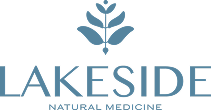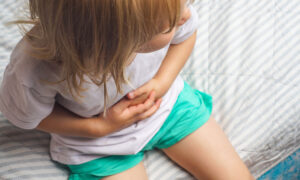Natural Solutions for PCOS: Options Beyond the Pill
Post date: October 14, 2016
Author: Sarah Axtell, ND

Polycystic ovary syndrome (PCOS) is a whole body condition, not just limited to the ovaries. Many women are affected with this condition and can result in a wide variety of not-so-pleasant symptoms, such as male-pattern hair growth, acne and even infertility. While these symptoms can really take a toll on both your mental/emotional and physical well-being, I am here to tell you as a naturopathic doctor that has helped many women with this condition that there are solutions! You have options beyond the pill!
Symptoms of PCOS
- Acne
- Ovarian cysts
- Weight loss resistance, especially
- Irregular periods
- Hair growth on upper chin, lip or chest
- Infertility
- Hair loss
Causes of PCOS
PCOS is a hormone imbalance, most notably characterized by an overproduction of testosterone and insulin. Understanding the connection between insulin and testosterone is key to understanding PCOS and the therapeutic diet I recommend.
When you eat carbohydrates, your body produces insulin in attempts to decrease the glucose in your bloodstream from the carbs and sugar. This overproduction of insulin can lead to insulin resistance, which then increases testosterone bioactivity. This testosterone excess is responsible for the hair on your chinny- chin-chin and that stubborn acne along your jawline. So decreasing insulin with your diet is key to getting your sex hormones (estrogen, progesterone and testosterone) back into balance.
Metabolic Goals of a Naturopathic Approach to PCOS
- Lower testosterone
- Induce ovulation
- Modify insulin resistance
Diet for PCOS
A strict low carb diet is a must for getting your hormones back into balance. I often recommend avoiding the following:
- Gluten
- White potatoes
- Corn
- Sugar
Occasionally, I have patients further restrict their diets by avoiding grains (and adapt more of a Paleo diet and lifestyle) if we are not getting results from the above dietary restrictions.
Rather than just focusing on what you can’t have, I recommend focusing on all the foods you can have:
- Free-range, grass-fed organic meat, fish, poultry
- Organic Eggs
- Vegetables
- Fruits
- Nuts and seeds
- Plenty of good fats- avocado, olives, nuts, seeds, coconut oil, olive oil
- Dairy if tolerated
Food as Medicine is my passion, and I try to get patients excited about this healthy diet that can truly be life-changing. Pregnancy, regularity of periods, radiant skin, and a healthy weight are all benefits that are realistic when you commit to diet and lifestyle modifications.
Herbs and Supplements
Before recommending herbs and supplements to my patients, I often test hormones to determine the underlying imbalance. Once we have results, whether it be too little progesterone or elevated testosterone or insulin, I can then devise a plan that includes diet and lifestyle modifications and herbs and supplements to address the imbalances accordingly. Here are some herbs and supplements that I have found to be helpful:
- D-chiro- or myo-inositol (to decrease insulin and thus testosterone)
- Berberine (similar in efficacy to metformin to address elevated blood sugar and insulin)
- Saw palmetto (to decrease testosterone)
- Peony and licorice (to decrease testosterone)
- Progesterone cream or chaste tree berry (to increase progesterone)
- Seed and oil cycling (with ground seeds and essential fatty acids)
It is not a one-size-fits-all approach. What works for some women does not work for others. That is why saliva testing and truly listening to the patient’s WHOLE story is key to devising the best individualized plan. Remember ladies, you have options beyond the birth control pill to manage this whole-body condition!
Explore Related Posts:





